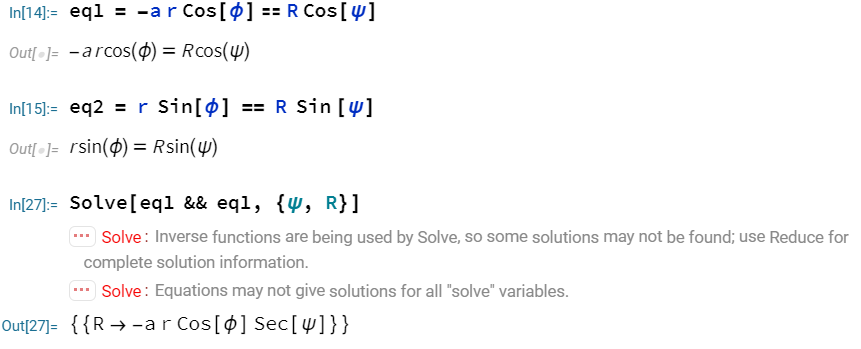As explained here, I'm trying to solve $$-ar \cos \phi = R \cos \psi \\ r \sin \phi = R \sin \psi$$ for $R, \psi$ in terms of $r, \phi$.
I believe the correct solution is $$R = r \sqrt{a^2 \cos^2 \phi + \sin^2 \phi}\\\psi = \arctan(\frac {-1} a \tan \phi)$$ but cannot get Mathematica to produce anything like that.
where it doesn't even solve for $\psi$!
Using Reduce gives a solution for $\psi$, but it's very different than what I'd expect:
I'm very new to Mathematica, so if I'm using it incorrectly, please let me know. Also: I can assume that e.g. $\phi$ is in the first quadrant and that $\psi$ is the simplest angle that works (I don't need every solution in $\mathbb R$).
Also: While my ideal would be to have Mathematica produce a simple solution, if it could verify or disprove my solution, that would also meet my needs.
Code below
eq1 = -a r Cos[\[Phi]]==R Cos[\[Psi]]
eq2 = r Sin[\[Phi]] == R Sin [\[Psi]]
Solve[eq1 && eq1, {\[Psi], R}]
Solve[eq1 && eq2, {\[Psi], R}]
Reduce[eq1 && eq2, {\[Psi], R}]


